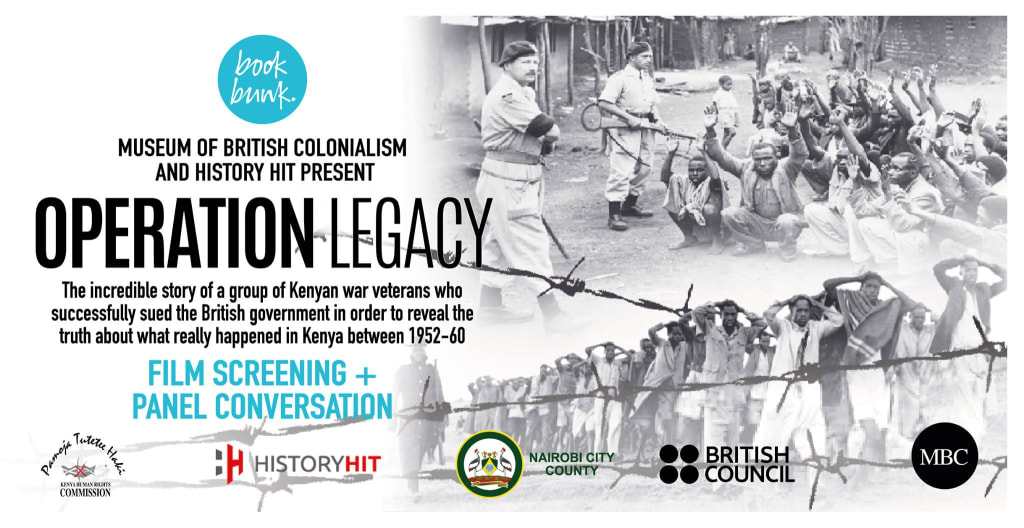The British policy called Operation Legacy,
Records that the British Empire didn't want you to see

In 2009, a group of five Kenyan individuals submitted a petition to the British Prime Minister's office. They alleged that they had suffered human rights violations during the 1950s when Kenya was under British colonial rule, and they sought reparations for their experiences.
The witnesses had detailed stories and visible injuries, but their credibility was questioned. They lacked proof that Britain authorized torture against Kenyans, at least for now.
Oh boy, were there some juicy secrets waiting to be uncovered! In 2010, a historian hopped on board the trial as an expert witness and spilled the beans about missing documents. Apparently, Kenya had been begging Britain to return stolen papers, but the government was like, "Nah, we'll keep 'em." Historians had been suspecting that something fishy was going on in the archives, and sure enough, the court ordered the release of relevant files. Lo and behold, a few days later, officials admitted that they had been holding onto 1,500 important files in a super secure archive. But wait, there's more! Turns out, those files were just the tip of the iceberg. Britain had been hiding documents left and right during the 50s and 70s as colonies were declaring independence. They even had a fancy name for it: Operation Legacy. Classic Brits.
It is regrettable that British colonial officers were instructed to destroy or remove documents that could incriminate Britain and be of value to new governments. These papers were to be burnt to ashes or secretly transported to the UK. It is saddening to think about how many documents were destroyed and what information they contained. During the trial between 2010 and 2013, an independent historian uncovered over 20,000 previously hidden Operation Legacy files from 37 former colonies. Additionally, an estimated 1.2 million colonial files were exposed, sprawling kilometers in the archive's so-called "Special Collections." It is disheartening to consider that these were only the documents that British forces kept. It is troubling that about 3.5 tons of colonial documents were slated for incineration in Kenya.
Operation Legacy had a clear goal: to hide the truth. As Britain's attorney-general in Kenya once said, "If we are going to sin, we must sin quietly." But what was the truth about Kenya? It all began in 1895 when the British government forcibly displaced people from their ancestral lands. These lands were then given to European settlers to establish vast farms, leaving behind a nostalgic memory of what once was.
So, the British thought it would be a great idea to force labor systems and restrict the movement of Indigenous African peoples. Surprise, surprise, the Kenyan people weren't too thrilled about that. They started organizing and one group, the Kenya Land and Freedom Army, decided to take matters into their own hands and overthrow the colonial government. The British didn't like that very much and declared a state of emergency in 1952, basically giving themselves permission to do whatever they wanted to regain control. Ah, the good old days of colonialism. Not.
The Operation Legacy documents confirm that the British subjected suspected resistance participants to horrific abuses. Between 1952 and 1959, over 80,000 people were imprisoned without trial and over 1,000 were sentenced to death for terrorism. Extreme surveillance and interrogation tactics were implemented. Some were beaten to death, others were raped or castrated, and many were shackled for years. Children were killed and one person was burnt alive. Testimonies include castration while handcuffed and blindfolded, being suspended upside-down and beaten, and sexual violation with a hot bottle. The British government issued a formal apology and made a financial settlement with the 5,228 Kenyan claimants involved in the case.
The five original claimants made history, but it's regrettable that it had to happen at all. The recently uncovered files challenge fundamental myths about British colonialism that many believed to be true. It's unfortunate that people had to live through the reality of colonialism to know the truth. The evidence confirms that colonialism was not a benevolent institution that brought freedom and democracy to its subjects, but rather a system that oppressed and exploited them. It's a shame that history had to be rescued from the ashes of this painful past.





Comments
There are no comments for this story
Be the first to respond and start the conversation.